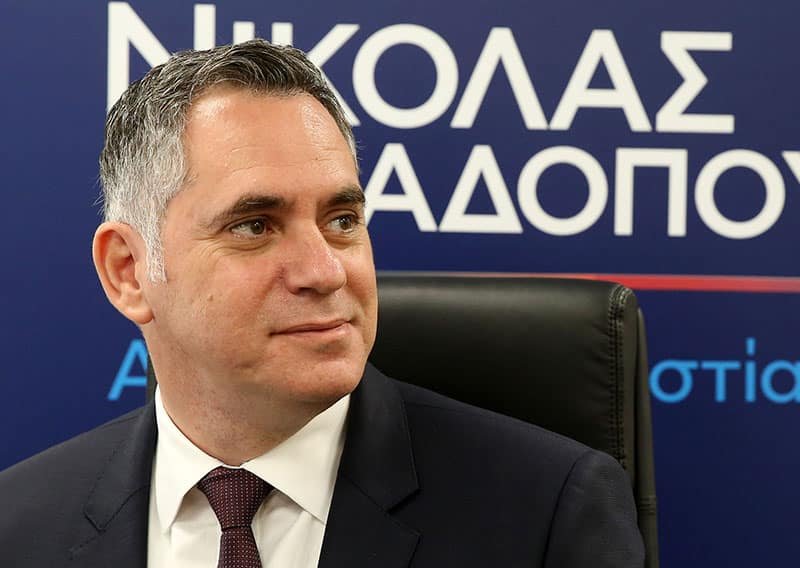A House watchdog committee meeting scheduled to discuss the demise of the co-op bank on Thursday was marked by ruling Disy MPs walking out citing conflict of interest and the auditor-general being informed that he had tested positive for the coronavirus during the session.
Whatever discussion took place afterwards was punctuated by barbs regarding the management of the bank that was shuttered in August 2018 under the weight of about €7.6bn in non-performing loans.
The meeting, attended by Finance Minister Constantinos Petrides, kicked off with ruling Disy MP Giorgos Georgiou suggesting that MPs who possibly benefited from preferential treatment could not examine the agreement to hand over the co-op’s NPLs to asset management firm Altamira.
Georgiou also questioned how Diko chairman Nicolas Papadopoulos could submit the issue for discussion when his former law firm had handled the process.
Based on the reasons he outlined, Georgiou said the issues at hand could not be discussed by the committee in the presence of colleagues “who have an overt conflict of interest”.
Committee chairman, Diko MP, Zaharias Koulias, said Georgiou should not have raised the procedural matter in the presence of the officials who had been invited to attend, suggesting it was a ploy to kill discussion of the matter.
“I understand some people do not want the matter to be discussed, I understand your difficulty, but you won’t stop it,” Koulias, an MP with millions in NPLs, said.
Of the law firm connection, Koulias said it was no different than President Nicos Anastasiades’ connection with his former law firm, now run by his daughters.
“This applies to the president, but you don’t accept it for the chairman of Diko?”
At this point Disy MPs left the room, as the committee started discussing the issue.
Not long afterwards, Auditor-general Odysseas Michaelides also left the meeting after he was informed that the rapid antigen test, he had undergone upon entry came back positive for the coronavirus.
Michaelides was retested but the result was inconclusive. He was told to undergo PCR testing to determine whether he was infected with the virus or not. It was later reported that his first PCR test came back negative. The results of a second PCR were expected at around 7pm.
The meeting resumed with the finance minister saying for the co-op to end up with €7.6bn in NPLs it meant the problem had started long before.
“The issue was not created in 2014 or 2015 but earlier, and there was a matter that the government had to manage,” Petrides said.
“Because the term looting was used, you do realise it is an institution that had been turned into a political party and regional free-for-all for decades.”
Of the Altamira agreement, Petrides said the matter was being investigated on the basis of the findings of an inquiry. In 2017 and 2018, nine cases had been referred to police for investigation and “we are waiting on them.”
A probe into the collapse blamed political parties for the situation leading to 2013 but held former finance minister Harris Georgiades mainly to blame for the situation afterwards.
The co-op’s good loans were taken over by Hellenic Bank, while the NPLs were left to Kedipes, a state-backed entity created to handle them.
In the two years since, Kedipes has raised €320m in cash for the state, paid €130m on a voluntary retirement scheme for former co-op staff, and €55m to Hellenic Bank as part of the acquisition deal that included protection of assets.
Petrides said it was time for Kedipes to move on to the next level, possibly by handling the cases of vulnerable people who could not service their loans and risked losing their homes.
“We think that Kedipes is in a transition stage to become an asset management company with a key social role,” he said.
After the meeting, Koulias said discussion would continue at any cost, as he criticised Disy of raising the issue on Thursday when it had no objections in the previous meeting.







Click here to change your cookie preferences